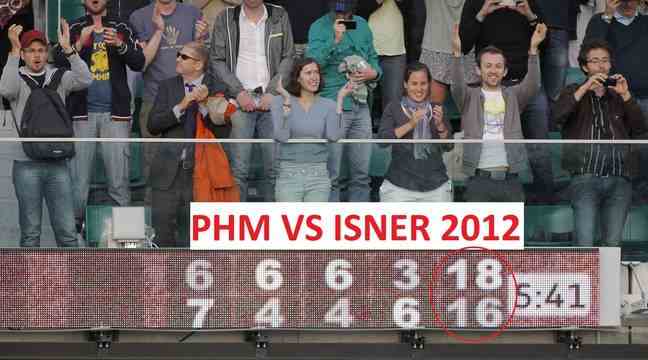It’s a slap, a splash in the face, the bad news we didn’t want to hear. A glorious era on which we sit, like that, in a snap of the fingers. No, even worse! In a PowerPoint slide. The start-up grave nation of marathons in five sets on the altar of a Roland-Garros torn between “tradition and modernity”, this is what to remember from Wednesday’s press conference, Porte d’Auteuil, two months old from the start of qualifying.
The executioners of romanticism on clay have a name: Gilles Moretton, Amélie Mauresmo and Amélie Oudea Castera. End of the French exception. The internationals of France are in line with a common decision between the four Grand Slam tournaments, that of establishing the super tie-break (10 winning points with a two-point difference) when a match has not unable to name a winner at 6-6 in the 5th set. A way to consolidate its place at the major table and appease the insecurities of a long-pointed Roland because too small, too this, and above all not quite worthy of Grand Slam status according to the pretenders to regicide.
“The central idea was to be aligned with other major tournaments, that was the priority, defends the new director of Roland. Having consistency to make it easier for fans, players and the media to understand was the central idea. »
The famous blow of “for the fans”
Pleasing the TVs, too, and making more predictable a program already subject to the whims of the Parisian sky. Corentin Moutet losing 18-16 in five sets, it’s funny for the viewer, but basically it’s a bit boring. The match must be interrupted, rescheduled for the next day, then the one which was to be played afterwards, in the event that there was no place on another court.
One can come up with many, noble excuses. For example, not much to say about Mauresmo’s health and equity argument. “We also took into account the health of the players because we saw that over the duration of a Grand Slam tournament, from 13-11, 16-14, and the tournament is largely mortgaged. “We can also argue that the fortnight rewards those who have better managed their energy capital over the laps, but fairness, why not after all.
Like any unpopular measure – we think strongly of the biennial World Cup of Fifa – the transition to the super-tie break feeds on paternalism and bad faith. This change would be a gift “to the fans who love this decisive and breathless moment at the end of the match” but a little earlier, the former world number 1 anticipated in her speech the disappointment “of the purists” in the face of a necessary adaptation of the regulations. Necessary but again not that much, in the end, since “there was only a fairly low percentage of matches concerned. »
Extended matches in the viewfinder
So what ? For a Santoro-Clement at each solar eclipse we deprive ourselves of 5th sets at 9-7, 10-8, of crowd movements in the aisles of the stadium because we heard about this sick match on an adjoining court whose we don’t want to miss the end without being sure that it will come one day?
And then even if it means choosing a single reduced formula, why not opt for the famous 12-12 of Wimbledon, which resisted the harmonization of the rules for a time? The limit was curious in itself but left a bit of room for fantasy late in the game. But as there is no more time for poetry, we will therefore be satisfied with a vague session of tennis-style penalties. Hoping that some rebels will embark us in miniature versions of Mahut-Isner, and that this amputation is not the first of a series of reforms intended to compress tennis.

